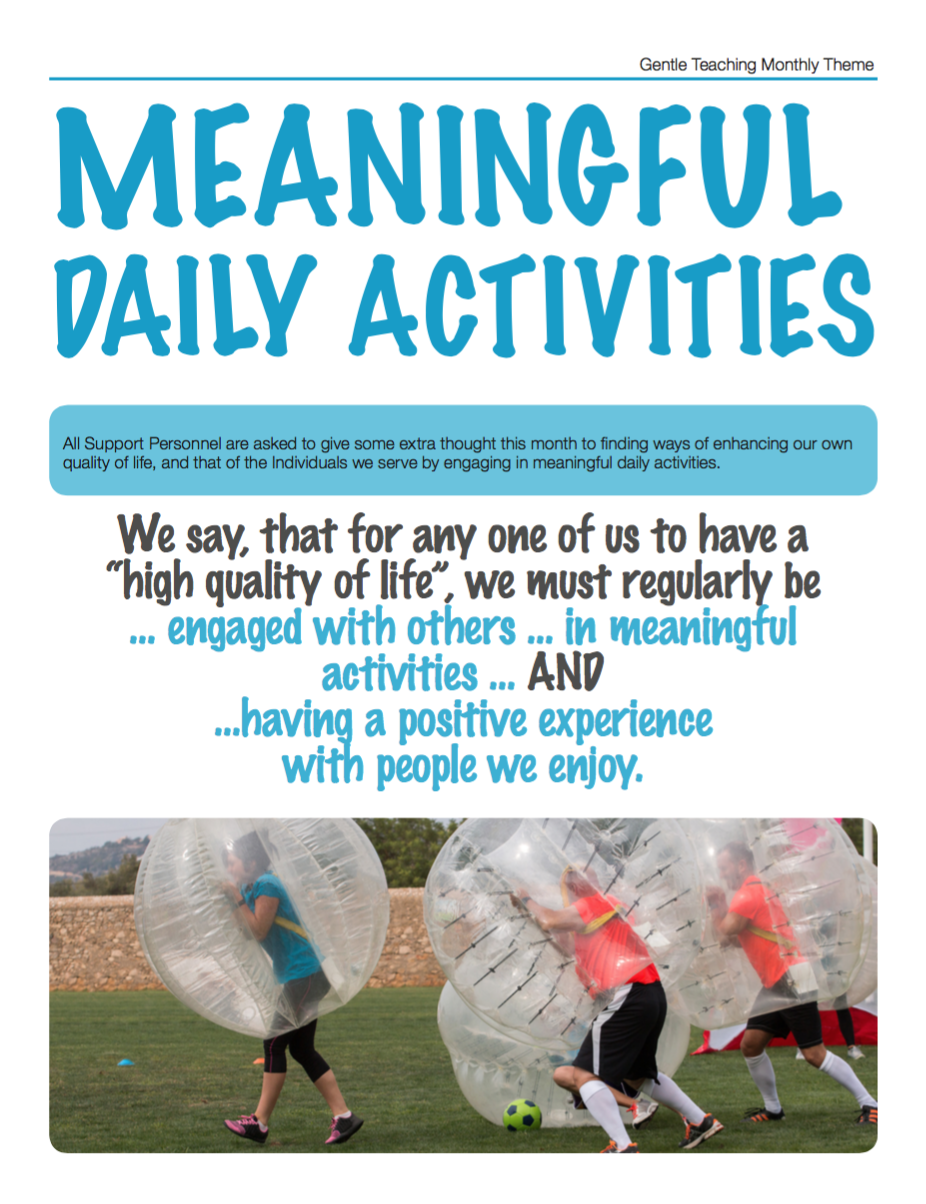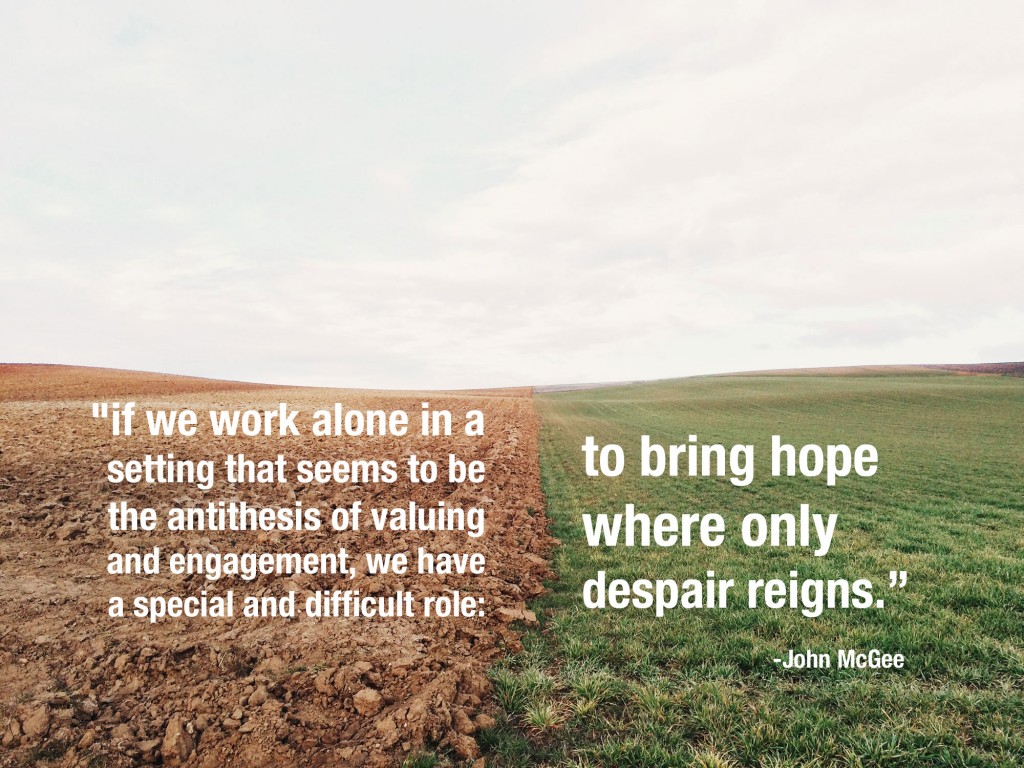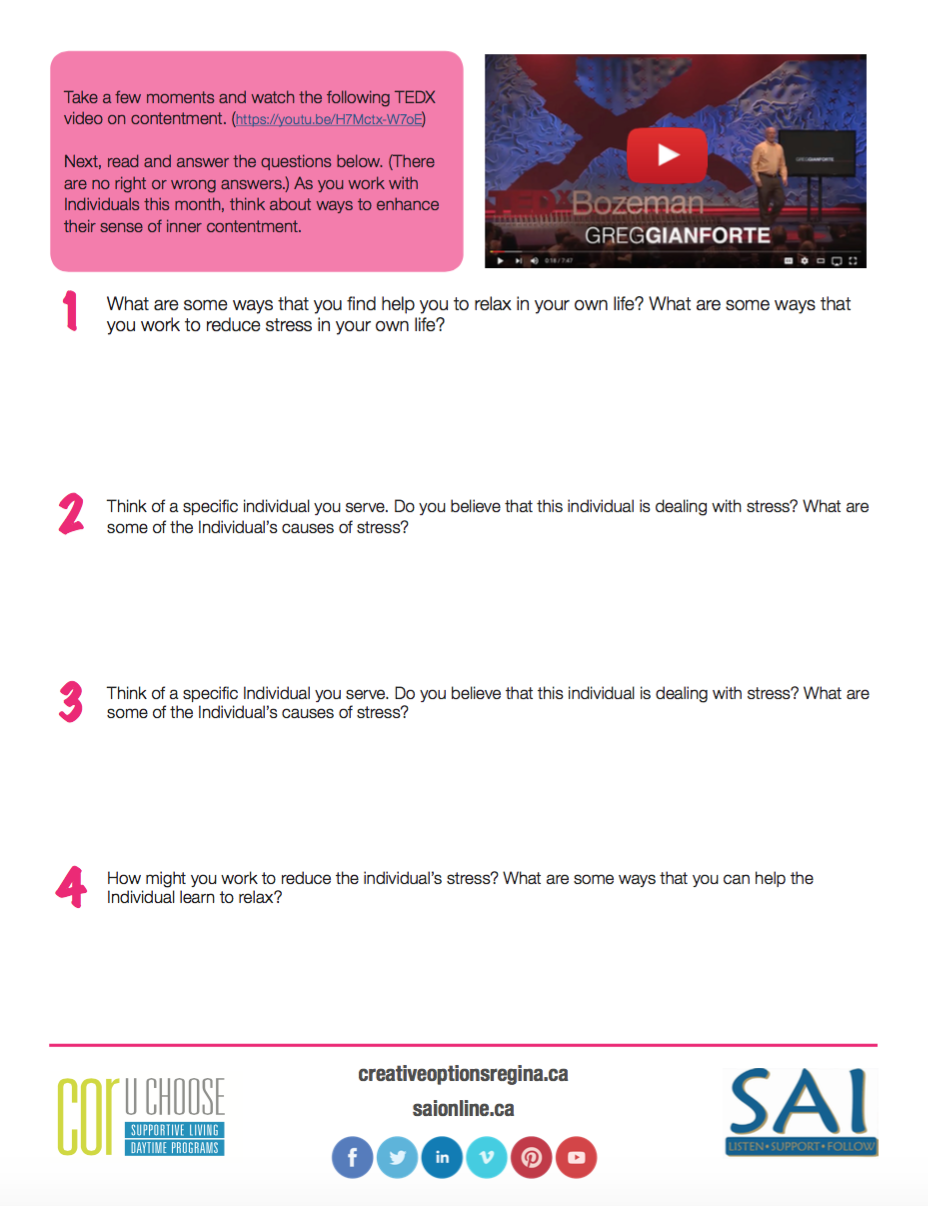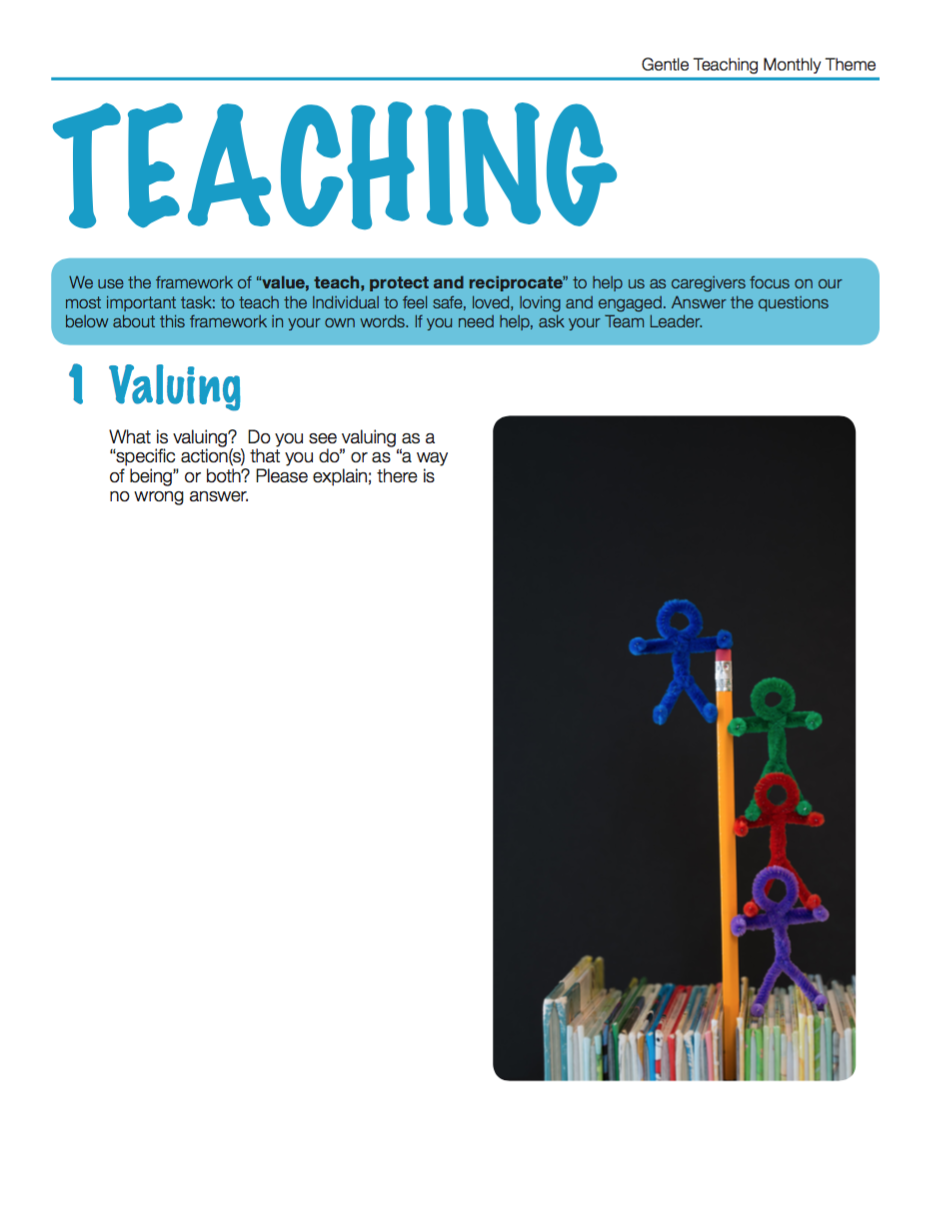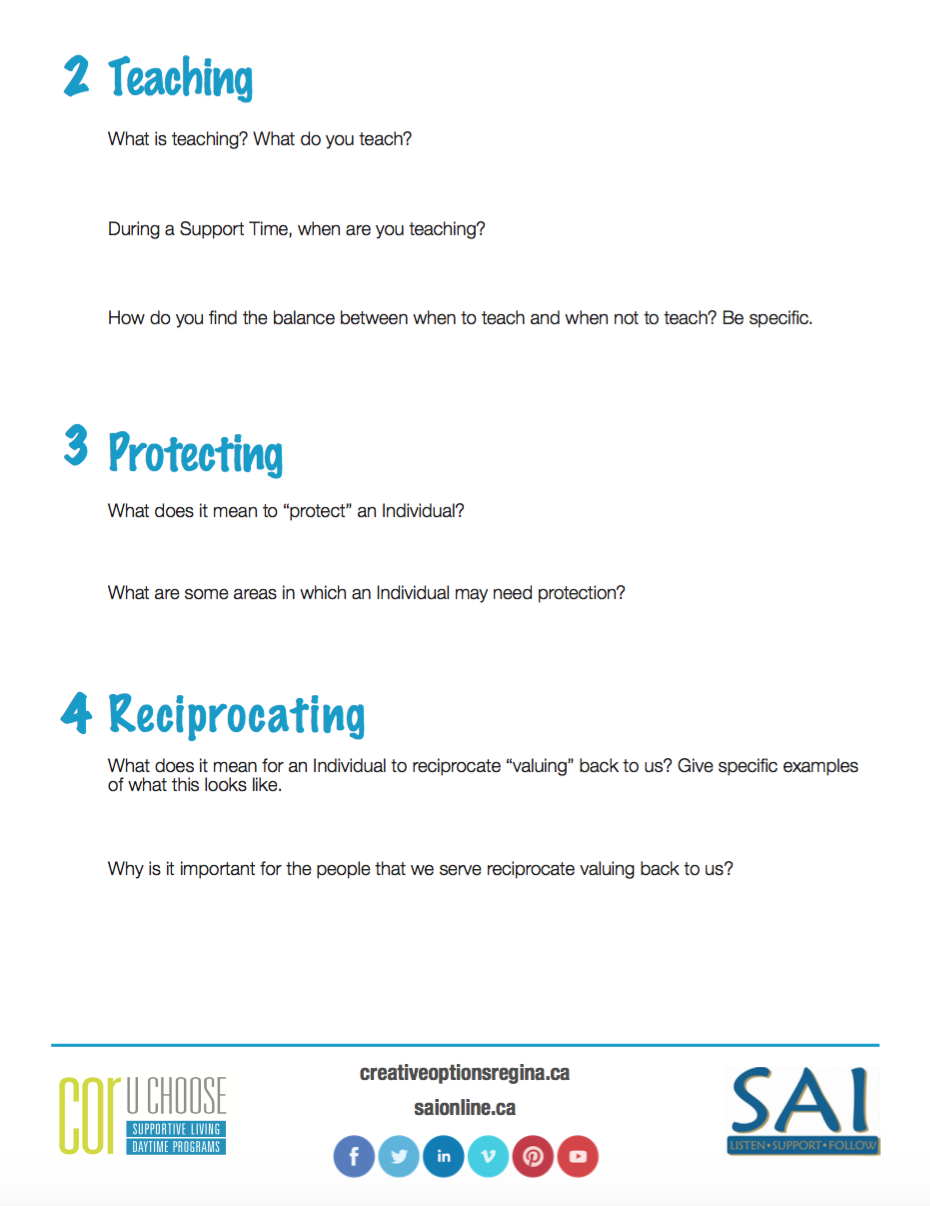Common Situations: Refusal to Participate
/in Blog, Gentle Teaching, Interdependence, Stories/by MichaelCommon Situations: Refusal to Participate
If the person refuses to participate,
• Make sure there is a structured flow to the day, not just the emptiness of custodial care.
• Be aware of other caregivers who might be coaxing, cajoling, or bribing the person to participate.
• Bring about minimal participation by doing activities with the person.
• Continue to dialogue.
• Emphasize valuing and elicit it during any movement toward the slightest participation.
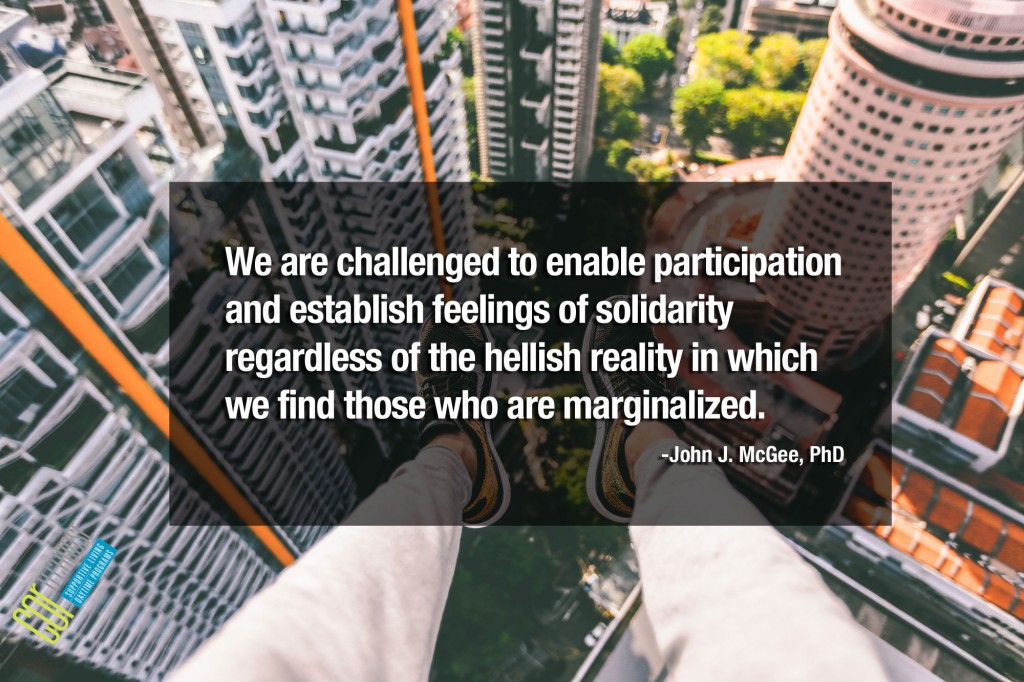
The major challenge in this situation is to make valuing occur, even in settings that contradict it. Many caregivers work in almost hopeless situations: institutions where the mentally ill are herded like animals, nursing homes where the aged are left to fade away, homeless shelters where the poor are warehoused for an evening. Although we need to fight for social justice and establish decent places for people to live, work and play, many caregivers still need to create hope and feelings of companionship where there is none. Thus, if we work alone in a setting that seems to be the antithesis of valuing and engagement, we have a special and difficult role: to bring hope where only despair reigns.
We will often be ridiculed for our idealism and seeming naiveté. Yet we can express valuing and create feelings of companionship even in the midst of hopelessness. Our interactions are what matters. If the person in the most forsaken institutional ward runs from us and falls to the floor, we can keep on teaching the meaning of human engagement. If the person lashes out, spits, or screams at us, we can move toward him or her and continue to bring about engagement and give unconditional valuing. We are challenged to enable participation and establish feelings of solidarity regardless of the hellish reality in which we find those who are marginalized.
-John J. McGee, PhD
We All Learn From Each Other
/in Blog, Employment, Stories/by MichaelMy most memorable time at COR has to be one of my more challenging days. We had just gotten back from a rough time at a softball game. The person I was supporting made a choice and ended up having to deal with some of the repercussions. When we got back home we had a really great heart to heart moment together. We talked and had a moment of learning together about what happened and why. I feel like it’s moments like these that I get up for everyday.
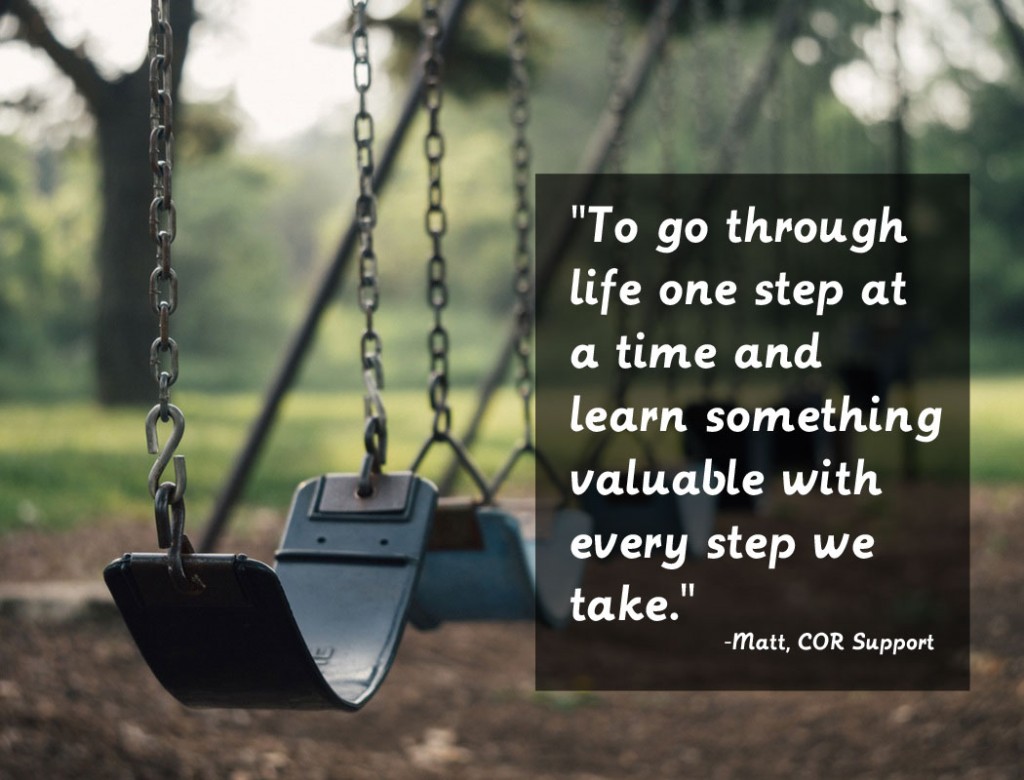
To go through life one step at a time and learn something valuable with every step we take. COR is an amazing place for everyone to come and learn. It’s not only the people we support that learn, but every person I have spoken to is truly impacted by the people we support in one way or another. We all learn from each other and its alright to make mistakes, as long as we pick ourselves up and are ready to try again.
Matt
COR Support
The Business Case For Inclusive Employment
/in 4to40, Blog, Events/by jeph
When: November 5, 2015 2-3pm
Where: Saskatchewan Science Centre Theatre
Cost: $25
RSVP: jeff@creativeoptionsregina.ca
Mark Wafer is the owner of six Tim Hortons franchises in Ontario. Over the past 20 years, Mark and his wife Valerie have hired 118 people with disabilities and currently employ 46 people with disabilities from a work force of 250.
Mark believes there is a clear business case for inclusive employment.
Mentors Cannot Give What They Do Not Have
/in Blog, Gentle Teaching/by Michael“Mentors cannot give what they do not have. Mentors are not about changing anyone’s behaviours; they are about focusing on others feeling safe with them and loved by them. Nothing more and nothing less. When in situations where there might be opportunities to state what they are against, they merely share what they are for.
Mentors do not devalue, put down or condescend; they lift up, respect, and simply share what they might do. They do not forbid or frown upon those actions that they do not like. They must be embedded in daily hands-on experiences with the most marginalized. They find joy in being among the most forsaken; they reach out to the most abandoned. The Mentor’s work is with caregivers in union with the most marginalized.”
-John McGee
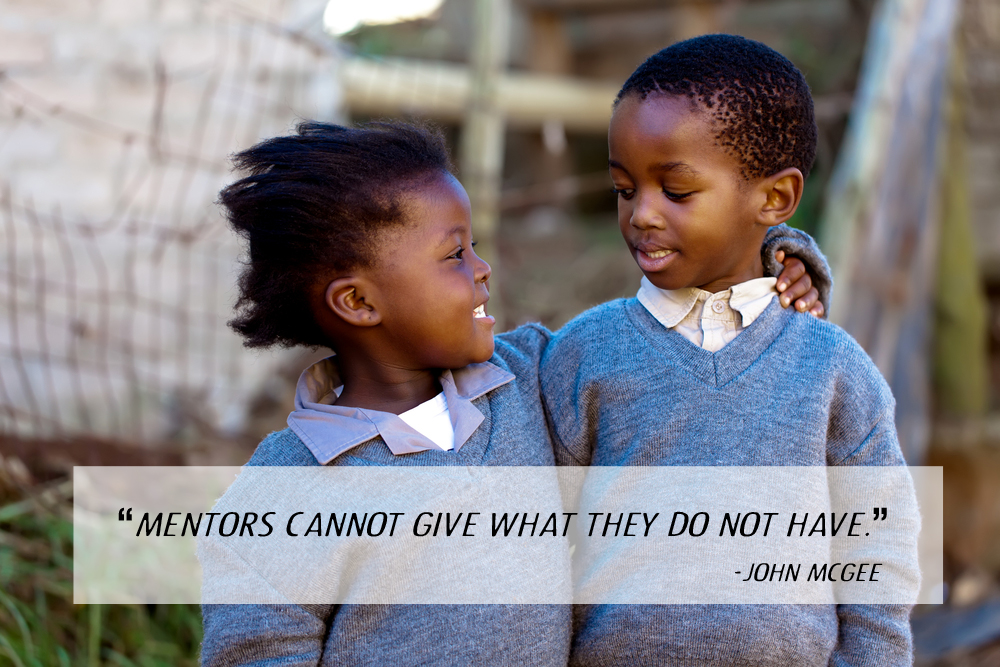
We Need To Be The Most Loving During The Worst Moments
/in Blog, Gentle Teaching/by Michael“We often see ourselves as better than those whom we serve and express this in talking down to those who are troubled, acting condescendingly, separating ourselves from their lives, and making sure that we are in control instead of dialoguing. Our task as caregivers is companionship and community. Our culture makes it harder because there is an expectation that we must control others by withholding ‘positive attention’ when someone is acting out. Our position is the opposite. We need to be the most loving during the worst moments.”
-John McGee
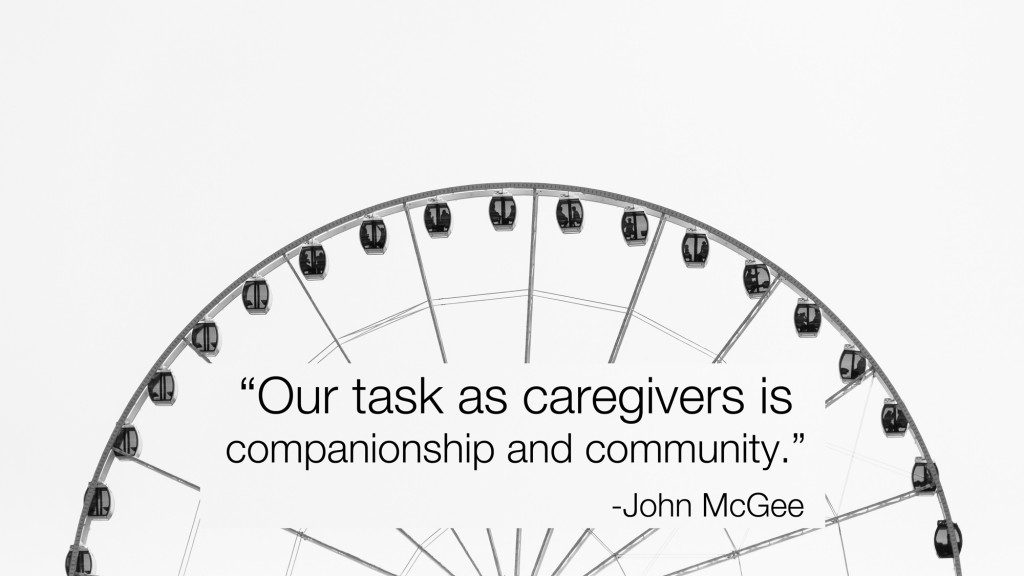
What is Community?
/in Blog, Gentle Teaching, Interdependence, Stories/by jephWhat is Community? from Creative Options Regina (COR) on Vimeo.
We need to rethink how we define “community”. People will say things like, “lets go out into the community”, when in fact we’re already IN community. We all make up the community; just being you makes you a part of it! Embrace what’s around you!
Unconditional Value
/in Blog, Gentle Teaching, Stories/by Michael“Our experiences with Gentle Teaching have taught us that change needs to start with us–our warmth, tolerance and the translation of values into relationships based on companionship. Our interactions need to reflect warm caring and a spirit of oneness in spite of even intense rejection or rebellion. They need to begin to signal feelings of empathy and the understanding that the relationship will evolve into an authentic friendship even though initially it is quite lop-sided.
Our interactions need to centre themselves on love the person with unconditional respect during the best moments and the most difficult ones. We have to care about the other and express the feeling that we are with and for the person. Spit can be running down our face or slaps stinging on our arms, but we need to unconditionally value the other. We are asked to transmit this feeling through dialogue and sharing our life experiences with the other. Our task is to initiate this process in a spirit of human solidarity.
Warmth can be felt in the tone of our voice, the sincerity of our gaze, and the serenity of our movements.
Tolerance is conveyed through patience in the face of aggression, respect in the face of rejection, and perseverance in the face of entrenched rebellion. Our values are the impetus within this process, and they need to be constantly questioned and deepened. It is this spirit that we have learned in our gentle teaching experiences–to break away from emotional homelessness, to rupture the cold grip of loneliness, and to center ourselves on unconditional love.
The challenge is not to find non-aversive behavioural techniques, but to formulate and put into practise a psychology of interdependence that goes against the grain of modifying the other and asks for mutual change. This presents a major challenge to parents, professionals, and advocates. It requires an awakening of our values and putting them into practice in the most difficult situations.”
-John McGee

